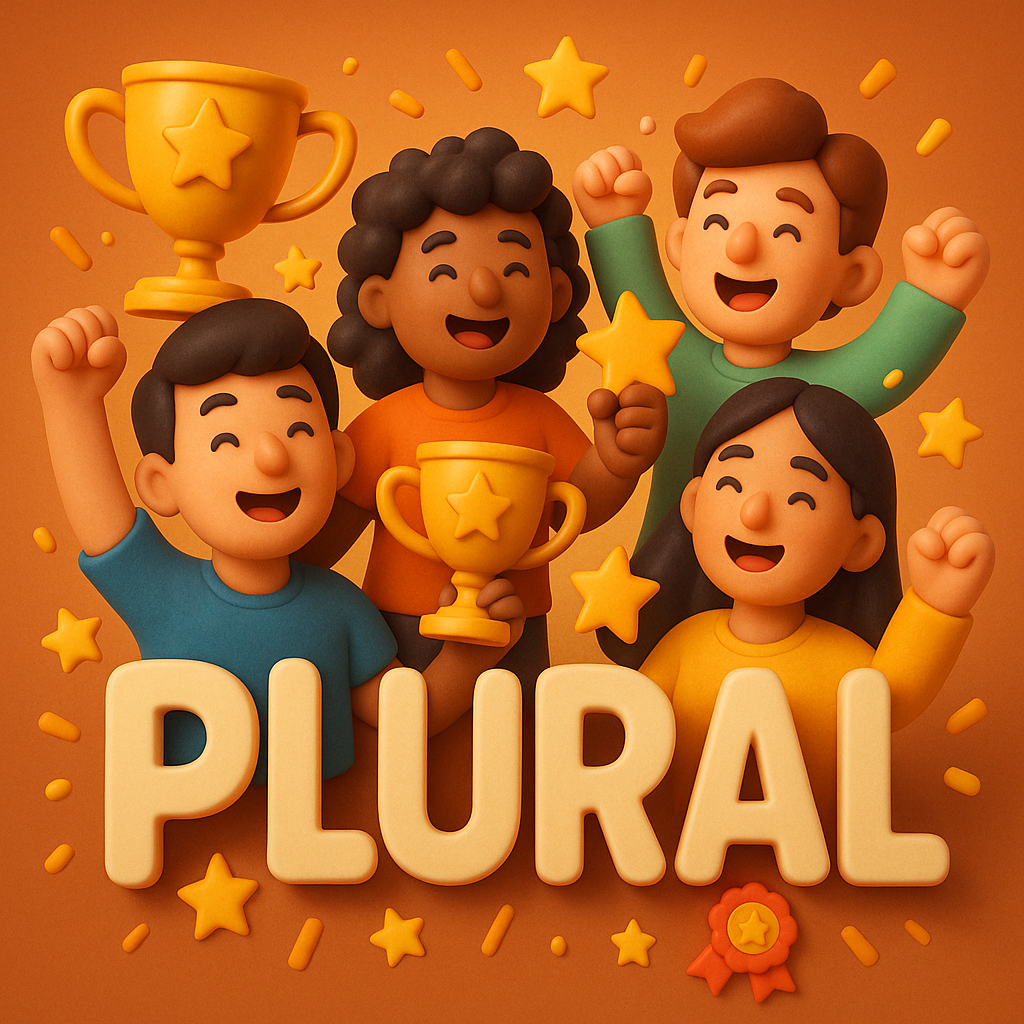Plural
Definition
Plural refers to the form of a word used to denote more than one person, place, thing, or idea; as an adjective, it describes something consisting of or relating to more than one. Its opposite is singular.
Parts of Speech
- Noun
- Adjective
Pronunciation
American English
- IPA: /ˈplʊərəl/
- Respelling: PLOO-ruh l
British English
- IPA: /ˈplʊə.rəl/
- Respelling: PLUHR-uhl
Etymology
Late Middle English: from Old French plural, from Latin plūrālis ‘more, several,’ from plūs ‘more.’
Derivatives
- pluralize (verb)
- pluralization (noun)
- plurally (adverb)
Synonyms
- multiple (adj.)
- many (adj.)
- collective (adj.)
Antonyms
- singular
- unitary
- individual
Usage
"The plural of “mouse” is “mice”."
"In English, most nouns form the plural by adding –s or –es."
Related Terms
- Singular: The form denoting one.
- Dual: A grammatical number for two.
- Count noun: A noun that can take a plural form.
- Mass noun: A noun that is generally uncountable.
- Morphology: The study of word forms and structure.
Detailed Definitions
Noun
- The form of a word indicating more than one – the variant used when referring to multiple items.
- Example: "‘Children’ is the plural of ‘child.’"
Adjective
- Of or relating to more than one – describing something composed of multiple elements.
- Example: "They celebrated their plural achievements together."
- Grammar: denoting the category of number indicating more than one – the grammatical number category opposite singular.
- Example: "Many languages mark plural with suffixes."
plural

‘Children’ is the plural of ‘child.’

They celebrated their plural achievements together.
Many languages mark plural with suffixes.





